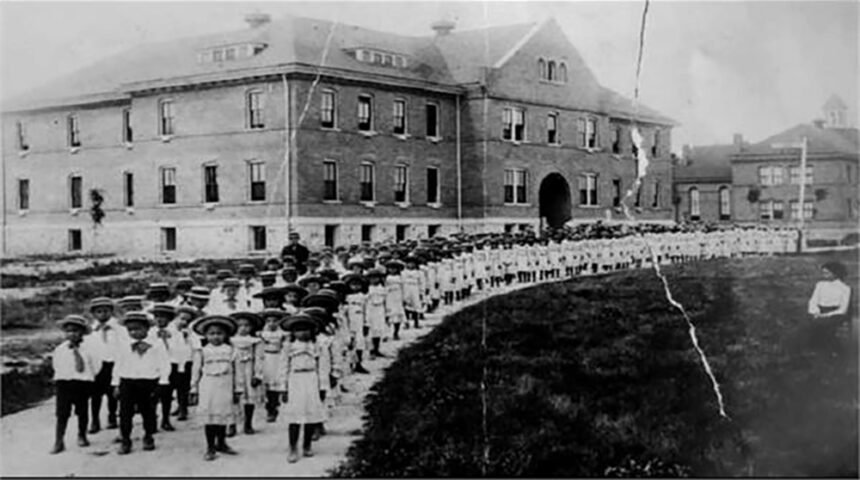MOUNT PLEASANT – The Federal Indian Boarding School Initiative has uncovered that 974 Indigenous children died while attending federal boarding schools from the 1820s through the 1960s, according to a report from the U.S. Bureau of Indian Affairs. This report provides detailed insights into the trauma experienced by Native American communities.
Among the five boarding schools supported by the U.S. government in Michigan was one in Mt. Pleasant. This school’s legacy remains a painful memory for members of the Saginaw Chippewa Indian Tribe. The report marks a significant step towards acknowledging the systemic efforts to erase Native American culture, though many are still awaiting a formal apology.
William Johnson, director and curator of the Ziibiwing Center of Anishinabe Culture & Lifeways, shared a personal connection to the tragedy. “It’s unfortunate, but my great uncle Wilson Johnson perished while he was a student at the Mt. Pleasant Indian Industrial boarding school and he perished when he was only 17 years old,” Johnson told CBS News Detroit. He noted that his uncle was among more than 200 children who died at the school.
“These are devastating ill effects from the American Indian Boarding School era that we are still recovering from,” Johnson added. He emphasized that the forced separation from families, assimilation pressures, and physical abuse have contributed to ongoing generational trauma.
Eric Rodriguez, interim public relations director for the Saginaw Chippewa Indian Tribe, highlighted the enduring pain of survivors. “You’ll see survivors did not want to talk about the experiences there because it was too painful, and it is still too painful, but the work is being done, and it’s being done in a safe space,” Rodriguez said.
The Federal Indian Boarding School Initiative, led by U.S. Secretary of the Interior Deb Haaland, the first Native American to serve in the U.S. cabinet, includes recommendations for addressing the harm caused by these schools. Among the suggestions is a formal apology from the U.S. government.
Rodriguez stressed the importance of this acknowledgment. “The acknowledgment and an apology on behalf of the U.S. government for the role they played is important for the trust and understanding of Native communities to know that there is some hope out there,” Rodriguez said. He also highlighted the need for further education, funding, and support for tribes to lead efforts in sharing the history of the boarding school era.










